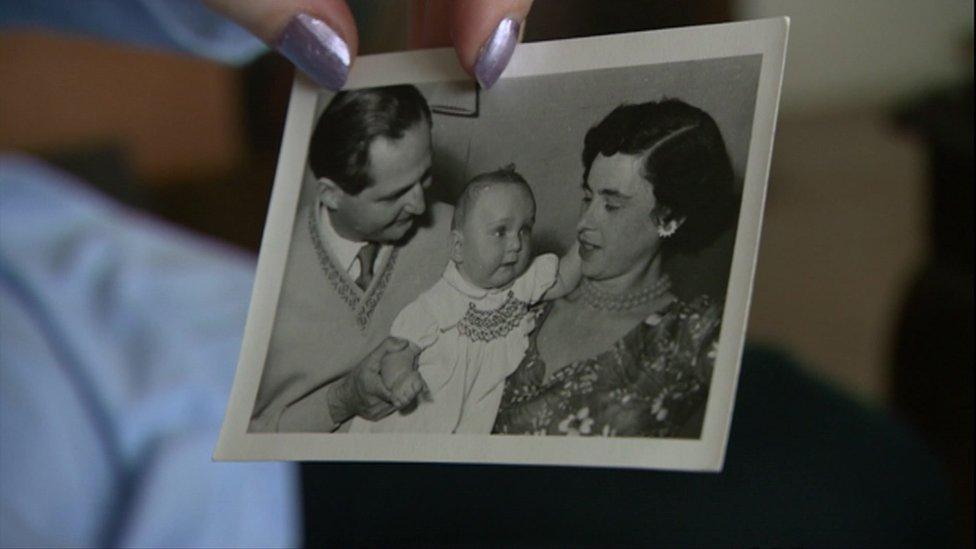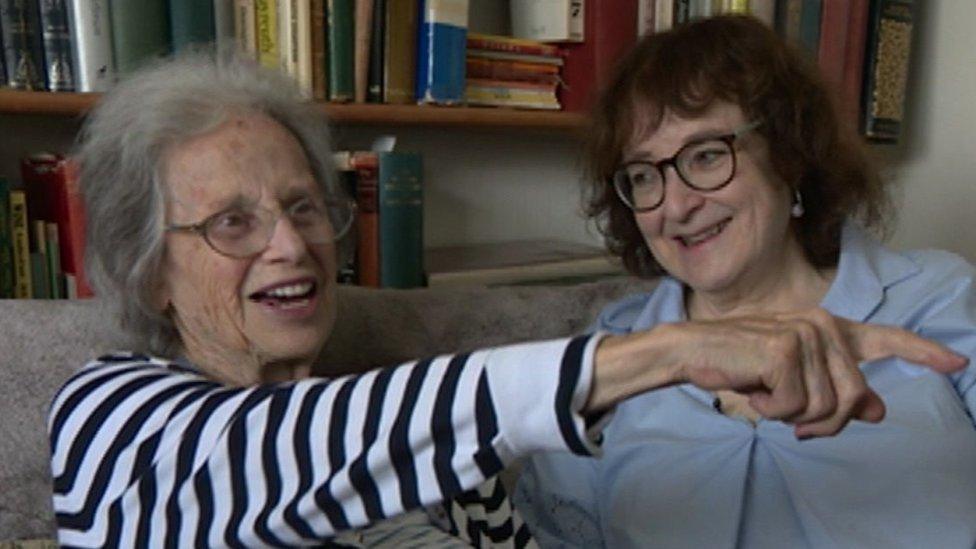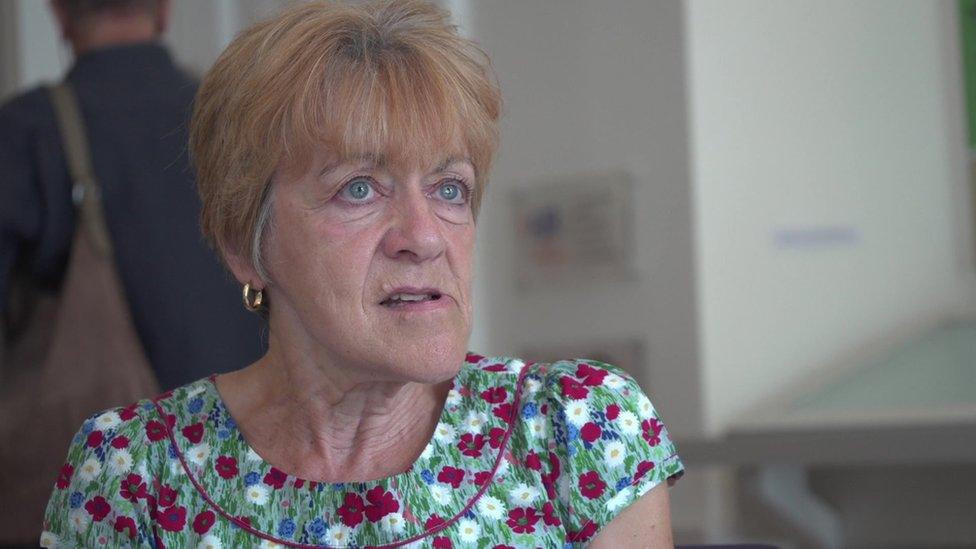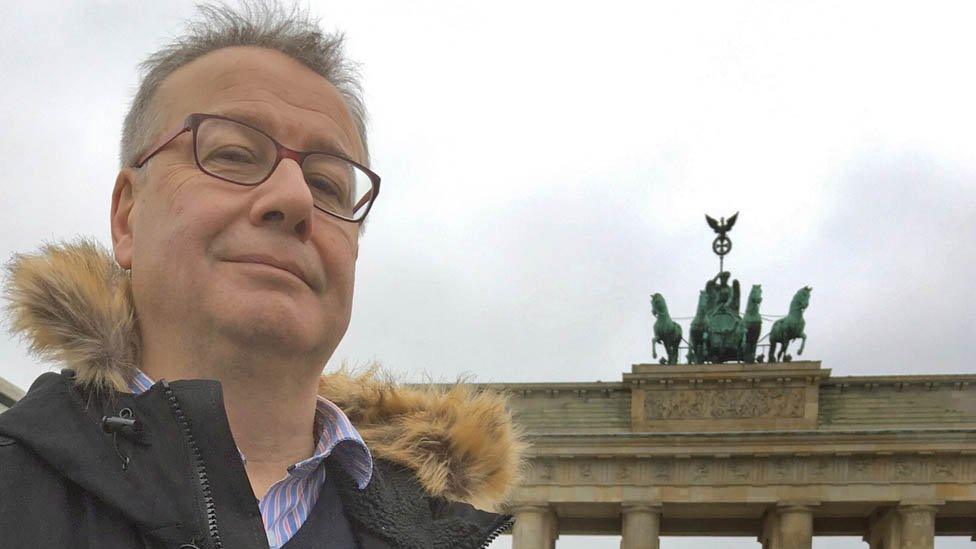Jewish refugee descendants challenge Germany over citizenship
- Published

Jacqueline Boronow-Danson said it was "insulting" she could not receive citizenship because she was adopted
British descendants of Jewish refugees who fled the Nazis are challenging the German government's rejection of their citizenship bids.
Anyone deprived of citizenship during the Nazi regime is eligible for it to be restored.
But some claim they have been turned down as they were adopted, or their parents left Germany before 1941.
The German Embassy said people can apply for citizenship under a different law, external starting this month.
Some of the people who spoke to the BBC have been fighting for citizenship for years.

Jacqueline Boronow-Danson (right) said she was not granted citizenship because she was adopted
Jacqueline Boronow-Danson, from Golders Green in north London, has been trying to get German citizenship for five years, but says her application was rejected because she was adopted.
"We can't be both biologically related and adopted, but in as far as I know, we don't feel any different to any close relationship between a child and its parents and that's why the German thing is so upsetting," she said.
"It's insulting because it doesn't acknowledge the truth."
New figures show the number of Brits applying for German citizenship has increased since the 2016 EU referendum.
In 2015, only 43 requests were made via Article 116, which applies to the descendants of anyone who was deprived of their German citizenship during the 12 years of Nazism on political, racial or religious grounds.
Since the Brexit vote, that number has increased to more than 600.

Sally Morgan said Brexit had made her reflect on who she was
Sally Morgan, from London, who has also been fighting for citizenship for years, said Brexit had been "a catalyst to make me reflect on who I am, and I am European".
She claims she was rejected because her nationality request was based on her mother being German, not her father.
Ms Morgan added: "The European links have grown because my in-laws are Polish, my son's married to a French woman... but it stems from my mother being German and I feel an entitlement for that citizenship to be acknowledged."
Diana Cook, from Leeds, said she was "trying to reclaim something that was stolen from my mother".
She said she had not been successful with her application because she was born "too early".
"I think there's a lack of understanding about how simple the solution is.
"For most people like me it's simply a matter of dates, and I was born a little bit too early. It feels bizarre."

Grounds for exclusion:
Born in wedlock to a formerly German mother with a foreign father before 31 March 1953
Born out of wedlock to a formerly German father with a foreign mother before 1993
Adopted by formerly German parents before 1977
Ancestor fled Germany and acquired a foreign citizenship before being forcibly denaturalised
Female ancestor fled Germany and married a foreign man before being forcibly denaturalised
Ancestor fled Germany and applied for the removal of their German citizenship before being forcibly denaturalised

Peter Guillery, also from London, said: "It feels quite wrong. There was no question [my father] had to leave Nazi Germany.
"He would not have become British if it were not for the fact that their lives were in peril and other members of the family died in the camps.
"I had a European passport for all those years and it just felt natural being half English and half German, and I don't want that taken away."
The German Embassy said it was aware there were cases of individuals that were not covered by the law, but who were equally interested in restoration of their German citizenship.
It said from this month, the German Interior Ministry would instigate new rules to allow people to apply for citizenship under a different law, external but it meant those applying would have to prove they could speak German and had strong ties to the country.
- Published24 December 2018
